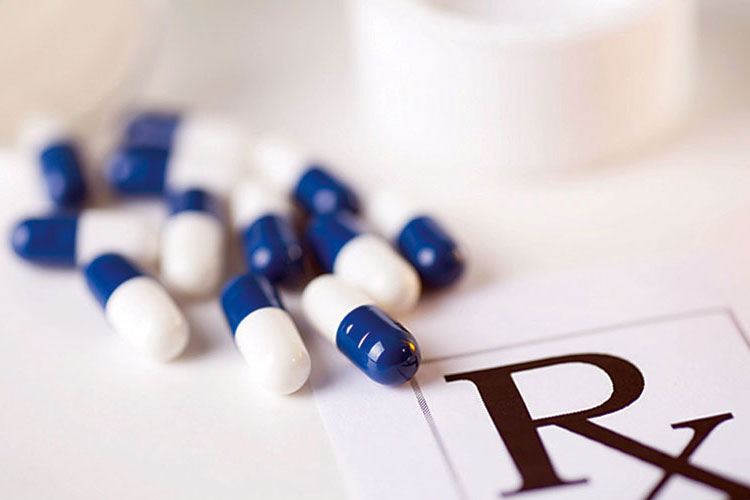St. Lawrence Dentistry performs dental procedures gently and conservatively. We make every effort to minimize the use of pain medications. However, sometimes they are indicated, and they can be very effective.
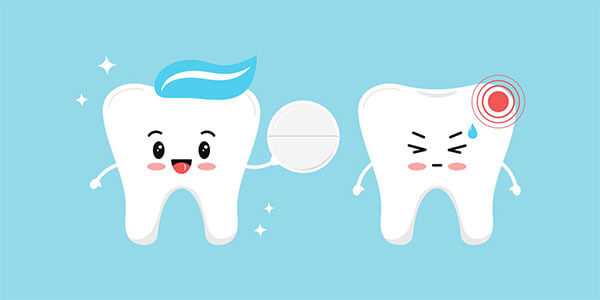
Pain medications have changed markedly in the past decades in that “codeine” has been replaced with Ibuprofen as the chief pain analgesic agent at St. Lawrence Dentistry. The original use of Ibuprofen was for arthritis. However, research revealed that a dose of Ibuprofen 400 mg surpassed powerful narcotics concerning pain relief in dentistry. Further studies have found that 600 mg Ibuprofen, available in a prescription form in Canada, is even more effective.
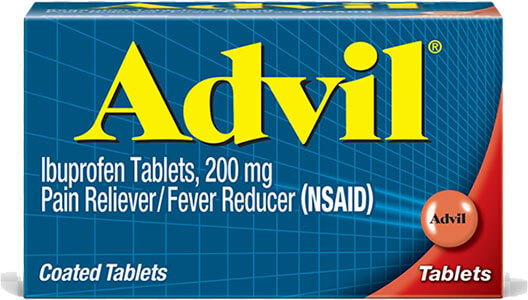
The classification of Ibuprofen is as a Non-Steroidal Anti-Inflammatory drug or “NSAID”. Dr. Hawryluk finds the way it works is quite interesting. When there is tissue damage, arachidonic acid in your body produces two enzymes called COX1 and COX2. NSAIDs work by blocking these. COX1 produces natural compounds called “prostaglandins” and “thromboxane”. Prostaglandins are essential for kidney and uterine contraction and stomach protection. However, these functions are not affected much if an Ibuprofen prescription is limited to 4-5 days (the typical duration of a dental analgesic prescription).
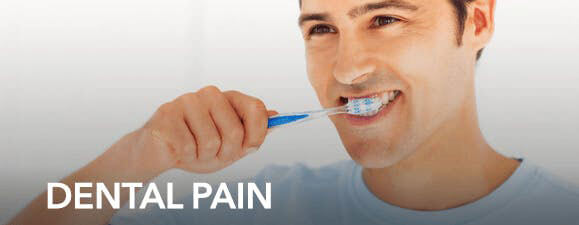
COX1’s production of thromboxane is vital as this is what allows for platelet aggregation. Platelets are a component of blood that helps with blood clotting – this is why when you are taking NSAIDS type medications, you can get excess bleeding. COX2 has the same effects as COX1, except it does not touch thromboxane.

When prescribing NSAID medications, Dr. Hawryluk will carefully consider the side effects and weigh them against the benefits they may have for you. The reactions with NSAID drugs include increased bleeding, dyspepsia (indigestion), stomach lining damage, kidney impairment, and allergies. It is common for these medications to cause pinpoint bleeding in the stomach. Dr. Hawryluk does not recommend NSAIDs for patients with gastric ulcers, bleeding concerns, hypersensitivity, kidney disease, or late in pregnancy.
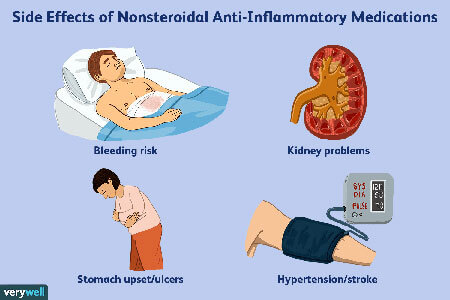
NSAIDs may interact with cardiovascular medications, central nervous system medications like lithium, acetaminophen (Tylenol), anti-coagulants, etc. One group who have to watch taking ibuprofen-type pain relievers are people taking ACE inhibitors (medication for high blood pressure). These rely on good kidney blood flow, and NSAIDS interfere with this. However, in general, if you are just on Ibuprofen for less than a week, there should be minimal effects.
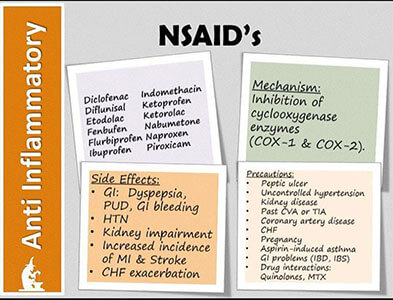
You must list all the medications you are taking on St. Lawrence Dentistry’s medical history form so Dr. Hawryluk can make safe analgesic choices for you. For example, The drug Methotrexate interacts with NSAIDs. However, if only a low dose of methotrexate is being used (such as for arthritis treatment), it is usually inconsequential. However, if it is a higher dose, such as cancer treatment, combining these two drugs can be fatal. Sometimes the drug misoprostol is used with NSAIDs as it is a prostaglandin and can limit stomach ulcers when taking NSAIDs. However, these drugs can have drastic effects on pregnancy and can even induce abortions- this underscores how essential accurate intake of your medical information is when prescribing medications.
In the past, we have often written pain prescriptions as “PRN” or as needed. However, research has shown that if we anticipate moderate pain after a procedure, consideration for a pre-procedure dose or round-the-clock dose instead of ‘as needed’ can effectively manage the pain you may be having. In addition, effective pain relief by medications usually entails first maximizing non-opioid medications before adding opioids.
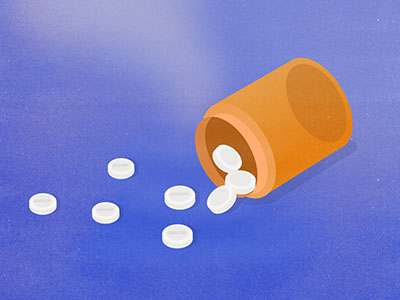
One common prescription given at our office is the following:
- Ibuprofen 400-600mg, every 6 hours
For most, the daily maximum of Ibuprofen (i.e. Advil or Motrin) is 2400 mg. In Canada, 600 mg tablets come in a prescription form. Unfortunately, many of the pharmacies around St. Lawrence Dentistry are not stocking the 600mg tablet.
Other effective common prescriptions of NSAIDS are:
- Flurbiprofen 50-100mg every 6 hours, daily max of 300 mg
- Diflunisal 1000 mg STAT (loading dose) then 500 mg every 12 hours, Daily max 1.5 grams
- Naproxen 500/550mg STAT, then 250/275mg every 6-8 hours, daily max 1375 mg
Ibuprofen use is usually great for dentistry because we do not use it long enough to cause many side effects. The big issue with Ibuprofen is its long-term use in medicine. As stated previously, it blocks enzymes in your body that can cause bleeding. About 16 thousand people die each year in the USA from long-term bleeding issues caused by NSAIDs. A newer class of NSAIDs is available to combat this bleeding issue. They are true NSAIDs, but they only block the COX2 enzyme, so they cause minor bleeding. Celebrex is the only one available in the Canadian market. Dr. Hawryluk Jr. does not recommend Celebrex for any patient who has heart issues.
A typical prescription for this medication is:
- Celebrex 200 mg bid (twice daily )for dental pain.
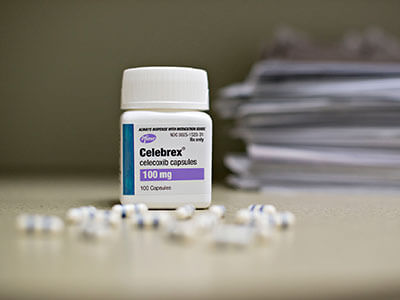
Acetaminophen (Tylenol) is another good choice in many situations for dental pain control. It offers analgesic, antipyretic (fever reduction) and causes no bleeding issues.
A typical adult Tylenol dose for mild/moderate pain is:
- Tylenol 325 mg tablets, one every 4 hours
A typical pediatric Tylenol dose given for dental pain is:
- 10-15mg/kg every 4 hours to a maximum of 65mg/kg/day
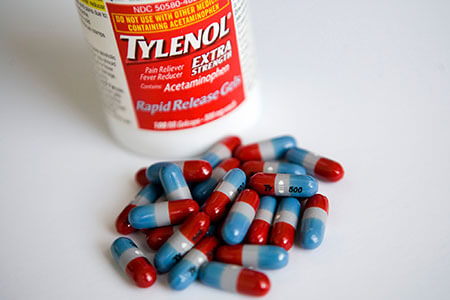
Currently, in Canada, the maximum adult dose is 4 grams/day. However, as of 2019, the government is thinking of lowering this recommendation as there are so many products containing Tylenol, and they are worried about people doubling them up.
The main drawback of Tylenol is that high doses can damage the liver as the metabolism of Tylenol occurs in the liver. Its primary metabolism process is called “glucuronidation” and “sulfation”. A more minor metabolism pathway is by an enzyme called CYP2E1 – which creates a very toxic metabolite (NAPQI’). Fortunately, it is usually not an issue because this is further broken down by glutathione. However, problems occur if a patient has liver disease. These patients have less glutathione, so that toxic metabolites can build up.

Opioids in dentistry are generally reserved for more severe pain and work by binding into opioid receptors called “mu, kappa, and delta”. In addition to pain relief, they have other effects, which are not limited to sedation, cough relief, respiratory depression, constipation, low blood pressure, urinary retention, and nausea.
Some typical opioid dosages used are:
- Codeine 60 mg, one tablet every 4-6 hours
- Oxycodone 5-10mg, one tablet every 4-6 hours
- Hydromorphone 2-4mg, one tablet every 4-6 hours (rarely used in dentistry)

Codeine by itself is a weak agonist, which means it is metabolized to morphine in the liver by “2D6 portion of cytochrome p450”. Sometimes patients report codeine does not offer them much pain relief. Sometimes this is due to the genetic variability of how much “2D6” you have. St. Lawrence Dentistry does not recommend codeine for breastfeeding mothers because of the 2D6 variability. Unmetabolized codeine can pass on to breast milk creating terrible consequences.
In Canada, Tylenol is available as a combination product with codeine. In particular, the doses of codeine in these products are 8,15,30,60 mg, respectively. In addition, all these products have 300 mg of acetaminophen.
We hope you have enjoyed this article. Our dental clinic is in the Port Credit District of Mississauga. We would be happy to serve you.!
- St. Lawrence Dentistry Looks Forward To St. Patrick’s Day! - March 12, 2025
- Understanding Dental X-Rays and Radiation: What You Should Know - January 13, 2025
- Happy New Year from St. Lawrence Dentistry! - December 30, 2024



